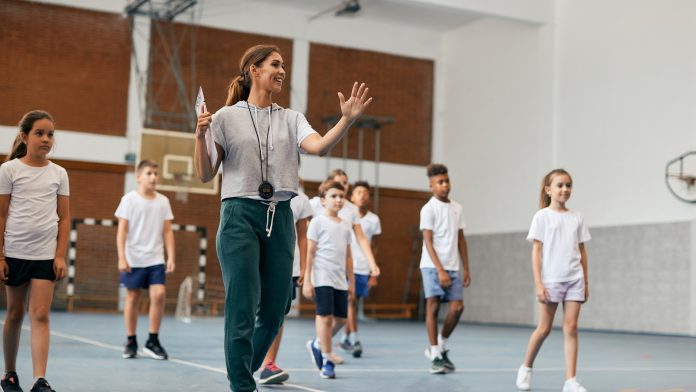
A new study finds that primary school children that partake in physical fitness have a better quality of life and improved concentration.
Physical fitness is beneficial for all age groups. However, for primary school-aged children, in addition to the physical impacts of exercise, those who are physically fit appear to advance further in their education, when compared to children with less sporting abilities. According to research from TU Munich, a clear correlation between physical fitness, concentration, and health-related quality of life for primary school pupils.
This study was conducted by the Department of Sport and Health Sciences at the Technical University of Munich (TUM).
Searching for a link between physical fitness and concentration
The study involved 3,285 girls and 3,248 boys from Bavaria’s Berchtesgadener Land district. The key criteria assessed were physical strength and endurance, the ability to concentrate, and health-related quality of life, as determined by the scientists according to internationally standardised test procedures.
The results illuminated that the higher the level of children’s physical fitness, the better they can concentrate, and the higher their health-related quality of life. The study discovered that boys performed better on physical fitness tests, but girls had improved concentration and quality of life levels.
Simultaneously, in all tests for physical fitness, overweight and obese children had significantly poorer results than underweight children and children with normal body weight. Furthermore, obese children also had significantly poorer values for health-related quality of life overall, physical well-being, self-esteem, along with well-being in friendships and at school.
Progressing to improved schools
Another important result of the study: “Primary school pupils with good physical fitness and a good ability to concentrate are more likely to make it to secondary grammar schools,” said Professor Renate Oberhoffer-Fritz, holder of the TUM Chair of Preventive Paediatrics, and Dean of the TUM Department of Sport and Health Sciences.
“This means it is all the more important to encourage motor development in children at an early stage since this can also have a positive impact on the development of mental fitness,” added Professor Oberhoffer-Fritz. “Collaboration among parents, schools, communities and athletic clubs is very important when it comes to creating a comprehensive and appropriate range of possibilities.”
Dr Thorsten Schulz, head of the study team at TUM: “Based on the results of the study, since 2019 the Berchtesgadener Land District Administration Office has been giving all first-grade pupils in the region a voucher for a one-year membership in a sports club. This is a great example for how different stakeholders can work together and help motivate children to be more athletically active.”
The data collected was based on internationally recognised and standardised, age-appropriate tests. Physical strength and endurance were measured according to the criteria of the FitnessGram guidelines, ability to concentrate was determined utilising the d2-R test and the health-related quality of life (HRQOL) was measured using the KINDL questionnaire.
The study was conducted in compliance with the principles of the Declaration of Helsinki and approved by the local ethics commission.









